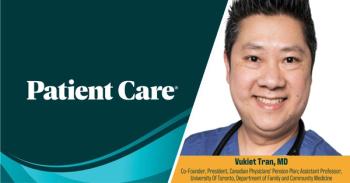
ACAAI: Servent Plus Inhaled Steroid Said to Reduce Asthma Exacerbations
PHILADELPHIA -- Adding the long-acting beta2-agonist Serevent (salmeterol) to an inhaled corticosteroid reduces the rate of asthma exacerbations and asthma-related hospitalizations, said researchers from Servent's maker.
PHILADELPHIA, Nov. 12 -- Adding the long-acting beta2-agonist Serevent (salmeterol) to an inhaled corticosteroid reduces the rate of asthma exacerbations and asthma-related hospitalizations, said researchers here.
Servent in combination with Flovent (fluticasone) was associated in the recent SMART (Salmeterol Multi-center Asthma Research Trial) study with severe asthma exacerbations, and an increased risk of life-threatening adverse events and respiratory deaths among African Americans, in particular. Those findings led the FDA to require a "black box" warning on long-acting beta2 agonists.
But in a retrospective pooled analysis of studies conducted by GlaxoSmithKline, maker of Servent and the Servent/Flovent combination Advair, Courtney Crim, M.D., and colleagues from GSK reported that 5% of patients on the combination of Servent and an to inhaled corticosteroid, either as Advair or dosed concomitantly, had exacerbations, compared with 10% of those on an to inhaled corticosteroids alone.
The investigators reported their findings in a poster session at the American College of Allergy, Asthma and Immunology meeting.
"Numerous studies have shown that an ICS plus long-acting beta2 agonist is more effective than higher doses of an ICS alone in improving asthma control and reducing exacerbations," the authors wrote. "However, recent analyses have suggested that there may be an increased risk of serious asthma-related adverse events in subjects receiving salmeterol.
They conducted a pooled analysis of 27 studies conducted by GSK in the United States. All studies were of parallel group design lasting four to 40 weeks, and were carried out in participants with persistent asthma. All studies had at least one treatment arm in which the participants were randomized to receive Serevent in combination with an inhaled corticosteroid.
The analysis focused on asthma exacerbations resulting in hospitalizations. A total of 9,954 patients, ages four years and older, representing 2,859 patient years of exposure, were included.
The participants included 4,437 white patients, 534 blacks, 377 Hispanics, and 405 children (race/ethnicity not specified) who took the combination. Another 3,663 whites, 417 blacks, 265 Hispanics and 406 children took an ICS only.
There were a total of six exacerbations resulting in hospitalizations among 5,493 patients who used the combination, compared with 10 in 4,461 patients who used inhaled corticosteroids alone.
Exacerbations occurred among 5% of white patients, 7% of African Americans, and 6% of Hispanics on the combination, compared with 10% of whites, 10% of blacks, and 9% of Hispanics on the combination.
Among children, exacerbation rates were similar, at 5% for those on the combination, and 6% for those on the ICS alone.
The exacerbation rate per patient-year was 0.2 for the combination, 0.3 for the inhaled corticosteroid alone.
The hospitalization rate per patient-year was also lower in the participants who received Salmeterol plus ICS (0.004) compared with ICS alone (0.007).
There were no asthma- or respiratory-related deaths reported in any of the studies.
Because this was a retrospective analysis, investigators did not calculate P values for any of their findings, so statistical significance of the results cannot be confirmed.
"But if I had to guess, I'd say that the none of the differences was statistically significant," said co-author Steve Yancey, M.S., in an interview.
An asthma and allergy specialist who was not involved in the study commented that while it indicates that while the addition of Serevent does not appear to increase risk of exacerbations or serious adverse events, clinicians should still be aware of the potential for life-threatening complications in a small number of patients.
"I think that we still need to be cognizant of the black box warning, and I think that following the guidelines that have been set by the NIH does give us the best location as far as placement of these extremely effective medications in the treatment of asthma is concerned," said Michael S. Blaiss, M.D., a clinical professor of pediatrics and medicine at the University of Tennessee Health Science Center in Memphis.
Dr. Blaiss has received grant support and honoria from GlaxoSmithKline.
The study authors are all employees of GlaxoSmithKline, maker of Servent, Flonase, and Advair. The studies included in the analysis were all funded by the company.
Newsletter
Enhance your clinical practice with the Patient Care newsletter, offering the latest evidence-based guidelines, diagnostic insights, and treatment strategies for primary care physicians.

































































































































